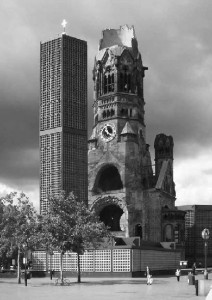Month: September 2012
My Most Prized Possessions – Krishna Winston reading at the Deutsches Haus at New York University
On September 21, Krishna Winston and German author Christopher Kloeble read from his book Meistens alles sehr schnell and Krishna’s translation of it (More Often Than Not All Very Fast) at the Deutsches Haus at New York University. The event was moderated by Martin Rauchbauer, director of the German Haus.
The serious but still humorously told story centers around the Bavarian village of Königsdorf and the complicated family history of its main protagonists. Albert, who is 19 years old, grows up in an orphanage without knowing who his mother is, or whether she is even alive. All his life he had to play father to Fred, who needs his help, even though Albert is his son: Fred is an elderly man with the mind of an innocent child who occupies himself with reading encyclopedias, counting green cars and is considered the hero of a tragic bus accident that took place in the village. When doctors discover that Fred only has five months to live, father and son embark on a quest to find Albert’s mother, an odyssey that leads deeper and deeper into the past. Kloeble in his own words: “This novel is primarily about love. Love between father and son. Fading love. Motherly love. False love. Passionate love. Love-hate. And last but not least the (impossible) love between brother and sister.”
http://deutscheshaus.as.nyu.edu/object/dh.event.mymostprizedpossesions210912
Modernist Memories: Architecture and Identity in the Federal Republic of Germany

Professor Kathleen James-Chakraborty (University College Dublin), an expert on 20th century German architecture and author of numerous publications will lecture on architecture and identity in Germany at Wesleyan University on Tuesday, Sept. 25, at 4:30pm, in 41 Wyllys, room 112.
Although the most prominent buildings in Berlin since the fall of the wall in 1989, such as Daniel Libeskind’s Jewish Museum, Norman Foster’s renovation of the Reichstag, and David Chipperfield’s reconstruction of the Neues Museum, are often understood as examples of a postmodernist strategy, their juxtaposition of historic architecture, often damaged in the Second World War, and modern forms that recall the architecture of the Weimar Republic, are in fact only relatively recent examples of an architectural strategy that can be traced back to the founding of the Federal Republic. Now associated with coming to terms with the atrocities of the Third Reich, in its original entirely modernist context this pairing originally encompassed conservative nostalgia for a pre-democratic past even as it helped define a specifically non-Communist present. Following reunification it served as alternative to the postmodernism with which it is too often confused in part because the degree of modernism’s rupture with the past is often exaggerated.
This talk is made possible through the Department of Art and Art History, Samuel Silipo ’85 Distinguished Visitor Fund, and the German Studies Department.
Kaffeestunde – Study Abroad
Interested in studying abroad in Germany?
Join us for our first Kaffeestunde this semester in the German House at 65 Lawn Avenue on Wednesday, September 19 from 5-6:30 p.m. You will meet former Wesleyan students who have studied in Regensburg and Berlin. They will talk about their experiences and answer questions.






